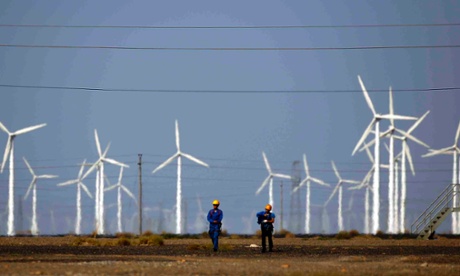Why developed countries should subsidize a global price on carbon
First published in the Guardian, August 26, 2014
“We demonstrated that the whole is greater than the sum of its parts.”
– the late Republican senator Howard Baker (Tennessee), co-sponsor of the Clean Air Act of 1970
A wise Grenadian recently asked me this very clear question:
My country is poor and we recently discovered oil, which will make us richer. Why should this oil be restricted or more expensive to exploit when your nation’s oil boom paid none of its environmental expenses?
A Chinese high school student recently asked me this similarly clear question:
My country’s manufacturing base means that my family moved from abject poverty to the middle class, and in my nation, hundreds of millions of others have done the same. Why should this manufacturing be more expensive by having to pay a cost for carbon when your nation’s manufacturing boom did not?
I grew up in the1960s, a decade when my family, my New York City neighbors, and tens of millions of other Americans were catapulting from poverty into the middle class. It was a great feeling. For perhaps the first time in modern history, large swaths of our society had enough money to purchase homes, spend on surplus and luxurious foods, hire household help, take vacations and buy new stuff on a regular basis.
This social and economic mobility was the envy of much of the world. And I’m certain the accompanying optimism helped open our hearts and minds to the great human rights revolutions of the past 50 years.
There was a shadowy side to this extraordinary period in American manufacturing, consumption and innovation, of course. Deadly air pollution in Los Angeles killed or sickened tens of thousands in the 1940s. Ohio’s

